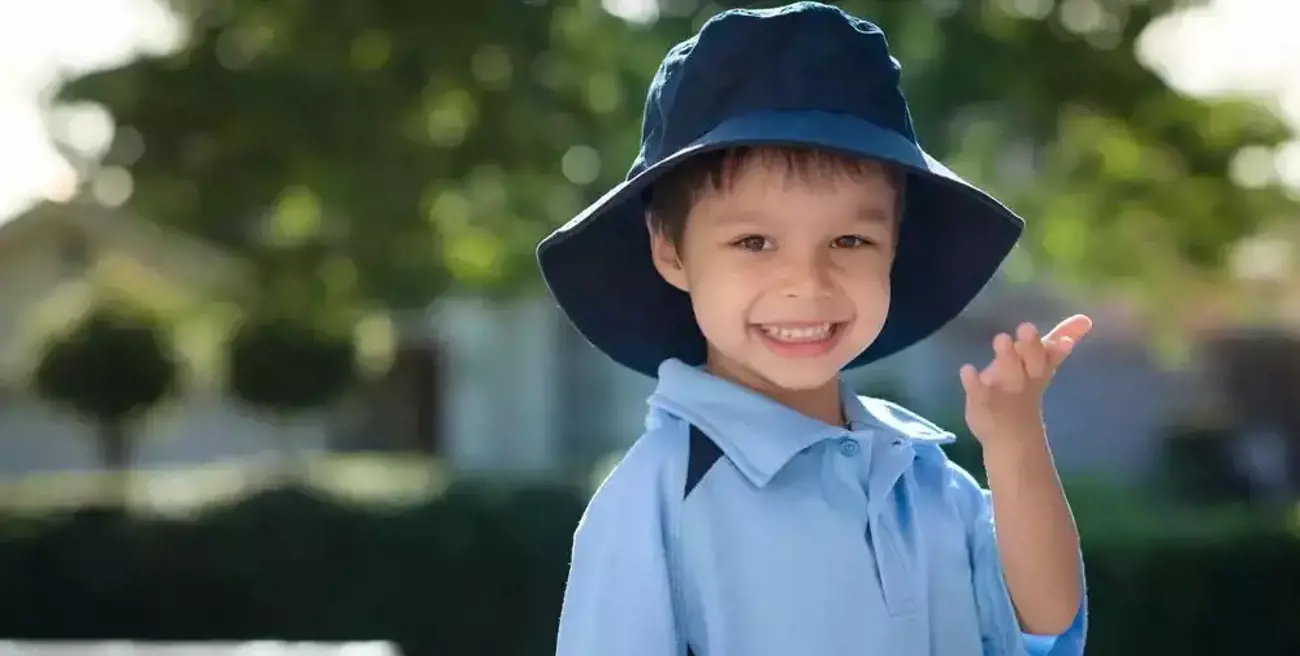While some children move to a new house in their early years and others welcome a sibling, starting school is a transition that's shared by all children. It involves settling into a new routine, navigating a new environment and learning new things. While it's a universal experience, each child will approach the transition in their own way.
Where one preschooler may be counting down the days till school starts, another might be feeling a little fretful, and another might not know what to think.
Fortunately, educators in the early childhood setting are adept at helping each and every child prepare for their successful transition from early childhood education to primary education. Here we look at some of the ways that early childhood services support children and families to help make this move a positive experience for everyone.
What school transition strategies do educators use?
Beyond Blue says that transitions are successful when youngsters feel included, secure and confident, and for this reason, educators consider the individual needs of children, and partner with families and schools to help ensure a smooth transition to big school.
Instead of just focusing on the first day of class, educators understand that the school transition process happens over time, not overnight. In fact, it starts in preschool and extends to the point when each child and their family feel like they belong at the school.
This means that as the preschool year draws to a close, educators are using many 'transition to school experiences' to support transitions and help children gain confidence and understanding in preparation for their next step.
In practice, Starting Blocks says that services:
- Talk to children before they begin school and encourage them to ask questions or raise concerns
- Communicate with local schools and arrange visits to meet Kindergarten/Prep teachers, see classrooms, meet other children and generally explore the educational environment
- Sometimes invite school students to visit the service and share their experiences with preschoolers
- Read stories about starting school, e.g. First Day at Bug School, The Night Before Kindergarten, and I Am Too Absolutely Small for School
- Include school-themed props in the dramatic play areas, e.g. uniforms, schoolbags and chalkboards
- Help children develop their self-help and social skills through routine activities, e.g. children might practice clicking open lunch boxes and twisting off drink bottle lids at meal times
- Incorporate literacy items that support a child's learning, like writing and reading materials, in preschoolers' everyday play activities
What role does the educator play during a transition in childcare?
As well as supporting children, educators or early childhood school teachers also partner with families and offer knowledge and support to parents: They're on hand to:
- Offer advice about a child's school readiness (if there's flexibility around when they can start)
- Suggest ways for parents to support their child's smooth transition to school
- Explain the service's transition to school strategies as they can provide guidance and tailored support
- Talk through any concerns, recognising that parents are also embarking on a new journey and transitioning to 'school mum' or 'school dad'
It's also worth remembering that school preparedness doesn't just happen in the last months before classes begin.
Throughout the early learning years, educators help under-fives develop the social, emotional, physical and cognitive skills that will stand them in good stead at school. Quality educators help children build knowledge, skills and confidence as they move through their early learning and into the next chapter in their education.
How does playgroup help children transition to school?
Although we think of preschool as the natural precursor to Kindergarten or Prep, there is evidence that many children benefit from playgroup when it comes to school transition.
According to new research commissioned by Playgroup Australia, children who do not attend local community playgroups are almost twice as likely to have trouble transitioning to school, compared with those who do attend.
Researcher Rhian Williams says that 'Playgroup actually improves [children's] school readiness' and, broadly speaking, playgroup helps:
- Improve kids' emotional well-being and physical health
- Improves their capacity and independence
- Provide children with more engaging educational experiences
- Reduces feelings of isolation, increases social inclusivity; and
- Provides economic, as well as social, benefits to Australia.
About 100,000 families participate in playgroup each week in this country, so it's great to hear of these benefits and all the more reason to attend playgroup in the years before school starts.
In summary, the transition to school is a big change, and whether children are excited, apprehensive or ambivalent, early childhood educators – and playgroup facilitators – play a key role in helping children and parents embrace the change.
Further reading
How parents can help children make a smooth transition to school
The far-reaching benefits of local playgroup
9 gorgeous books about starting child care
References
Queensland Department of Education & Training
6PR


































